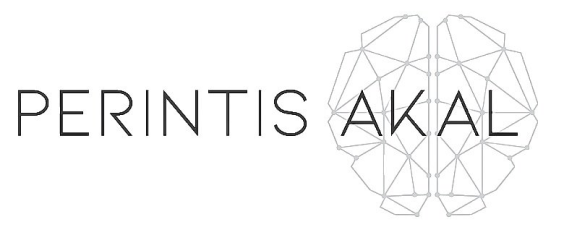While the Dayaks in their traditional feathered headdresses, loincloths and ornate shields are often a mandatory inclusion in the picture of a multicultural Malaysia, the same level of inclusivity cannot be said of their partaking in Malaysia’s socioeconomic development since its independence. The Dayaks, representing a diverse group of indigenous ethnicities in East Malaysia, remain among the most underserved communities in the country to this day.
Recognising this gap, the Dayak Cultural Foundation was established in 1992 among leaders of the ethnic subgroups to champion the welfare of the Dayak community. As an effort to determine the collective priorities of the group, the Foundation had organised the Dayak Cultural Symposium in 2018, which identified resolutions in the four key areas of Civil Service/Statutory Bodies, Economic Development, Business and NCR (Native Customary Rights) Land Issues.
The Symposium was a landmark in advancing the Dayak agenda, however operationalising the resolutions proved to be challenging. Thus, the Foundation organised the Dayak Cultural Foundation Workshop from 22–24 November 2019, bringing the most established and successful members of the Dayak community to move the resolutions forward.
Dato’ Sri Idris Jala, President and CEO of PEMANDU Associates, was invited to deliver the keynote address on the “Overview of the Implementation of the Symposium Resolutions 2018, Government Policy, and Economic Development”.
Reflecting on the issues at hand, Dato’ Sri Idris offered a key insight, “My advice is simple – most governments in the world fail in implementing many of their big policies because they have not been able to translate those high-level policies into detailed operational plans for implementation.” The same parallels emerge from PEMANDU Associates’ experience in driving transformation across the world, including Russia, Nigeria and Tanzania.
“Resolutions are high level wish-lists. Nobody will get that done until you translate it into detailed operational plans.”
For the Dayak, there is an urgent need to catch up as the world accelerates into the digital age. “We cannot afford to wait for such a long time, we want results now and we want them big. And there are only two formulas to get big fast results in my book,” he continued.
The first is instilling transformational leadership that walks the talk. Dato’ Sri Idris emphasised that this must be a collective behaviour among the people of Sarawak, who are all leaders in their own right. Transformation can only happen collectively when everyone plays their part, not by relying on the Chief Minister of the Deputy Chief Minister alone.
The second factor is in organising a new way of working among the Dayak, which must apply for both the leadership and participants within the community.
Transformational Leadership

To elaborate on the subject further, Dato’ Sri Idris revealed his secret of transformational leadership.
“To be great transformational leaders, one must pursue the game of the impossible,” he stressed. That is to set Olympian targets that seem impossible with the status quo.
“If my current way of doing things will not yield the results I want, what can I do differently to achieve it? Setting impossible targets will force you to change your way of thinking – it forces you to become transformational leaders.”
On a more personal reflection, Dato’ Sri Idris shared, “90% of us human beings will die not fulfilling our full potential because of the fear of failure.” He shared a hypothetical anecdote of a person who declared his ambition to be the fastest runner in the world, and thus started training every day for 4 years to achieve it. “It doesn’t matter if he manages to beat Usain Bolt or not. What matters most is that he pursued the game of the impossible, and he really went for it. He will then achieve his potential as an athlete, not Usain Bolt’s potential.”
“What is guaranteed amongst leaders who pursue the game of the impossible is not the results. But the guaranteed consequence is that you will be transformed – that is the key.”
Anchoring on the True North
The next step is to identify the measures of success. These serve as an indicator to assess an initiative’s achievement against a predetermined goal for a specified time. Taking the example of the NCR land issue, the group must determine how many parcels of land they can commit to surveying and resolving the respective title issues in a year.
“The measure of success must be clear and precise, it cannot be vague. That number will be your true north. Once you’ve set your true north, then you’ll know where you’re heading. And you’ll know exactly how to track it.”
In the context of the Dayak agenda, Dato’ Sri Idris commends the Foundation for identifying the resolutions focusing on the four key areas. The task is now to drill down on clear recommendations for each, with the workshop as a good initiative to gather input.
“Nothing moves until the leadership comes out with the things that they believe are the most important. People who say they are going to make a change in the Dayak agenda simply by empowering everybody to do as they wish – that is a recipe for disaster. You will never succeed. So you must frame the priorities – the more precise you are in framing your measures and demands, the better.”
A New Way of Working – The Big Fast Results Methodology Through Labs
Drawing upon the success of PEMANDU Associates in driving transformation for governments and businesses worldwide, Dato’ Sri Idris advocated the firm’s Big Fast Results – 8 Steps of Transformation Methodology to instil a new way of working. A critical component of this method are the labs.
“Get the best and the brightest people in the Dayak community, those who have a lot of experience, and include the government to participate in the labs. Based on your recommendations today, subject the participants to rigorous work in the labs to come up with detailed operational plans for the recommendations. You will never get them done until you do this.”
The detailed plans must then be operationalised. To do this successfully, organisations must adopt a new culture of implementation, summarised as the DMS approach: Do it Relentlessly, Monitor it Constantly, Solve Problems Recursively. This culture can be institutionalised through good governance structures and mechanisms to effectively monitor implementation and solve emerging issues.
The New Business Landscape
Advancing in the area of business can be particularly challenging for Dayak SMEs, given the speed at which new norms continually define the success and failure of businesses. “The global e-commerce market has reached USD 1.8 trillion today, and out of that, 73% is via mobile. Things are changing very rapidly in the world.”
In light of this, Dato’ Sri Idris offered 3 suggestions for Dayak SMEs:
1. Business transformation is no longer an option, but a must
Dayak SMEs should assess the profitability of each of their business activity. This can be done by breaking down their P&L to the lowest common denominator, to provide clarity on which activities are profitable. Businesses that think they have the right strategy and continue to operate based on those assumptions without considering the changing dynamics in the business landscape cannot succeed in a world that is highly competitive.
2. Digital transformation offers access to global markets
There has never been a better time in history where SMEs can access the global markets as easily as they can today. People all over the world can buy directly via the internet and mobile applications. SMEs should think about how they can position themselves and make their products marketable to the rest of the world. Think bigger, the local market is too small.
3. Products and services must be top quality
Businesses must ensure that their products are of good quality. Nobody will buy your products otherwise, and you will not be able to build your customer base.
Final Recommendations
 To conclude his keynote session, Dato’ Sri Idris reiterated his recommendations. The first is to secure an agreement on the Dayak agenda, and to detail out the requirements within these subcategories clearly. The discussions must be honest to ensure that the parties involved are committed to the agreed outcomes. The next step is to run the labs to translate these high-level resolutions on the 4 focus areas into detailed implementation plans can that be operationalised. The final step is to implement these plans with the DMS approach.
To conclude his keynote session, Dato’ Sri Idris reiterated his recommendations. The first is to secure an agreement on the Dayak agenda, and to detail out the requirements within these subcategories clearly. The discussions must be honest to ensure that the parties involved are committed to the agreed outcomes. The next step is to run the labs to translate these high-level resolutions on the 4 focus areas into detailed implementation plans can that be operationalised. The final step is to implement these plans with the DMS approach.
“If we really want to progress this forward, the Foundation must have a full discussion with the government of Sarawak on these four focus areas, then secure an agreement to run the labs for the four focus areas to bring them down to a level of granularity, setting precise timelines and budgets for execution. Hopefully with these recommendations, the Dayak community with the movers and the shakers, as well as the government, will have a clear path moving forward,” he concluded at the event.






